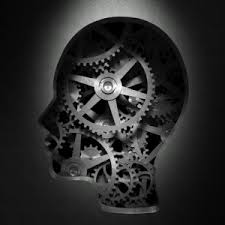
Contents
In poker, understanding the rules, mastering the math, and developing a strategic approach are vital. But there’s an element that often separates good players from the great ones: a deep understanding of player psychology.
Poker is a game of incomplete information. You’re not just playing the cards; you’re playing the people. Grasping player psychology can provide invaluable insight into a player’s potential hand and strategy. Here’s how:
Observe Your Opponents
The first step in understanding player psychology is observation. Pay attention to how your opponents behave during different stages of the game. Do they play aggressively or conservatively? Do they bluff often? What is their reaction when they have a strong hand or a weak one? How do they react to other players’ aggressive moves?
Look for patterns and tendencies. These observations can help you predict their future behavior, making it easier for you to devise an effective counter-strategy.
Understanding ‘Tells’
A ‘tell’ is a change in a player’s behavior or demeanor that gives clues about their hand. These can be physical (a facial expression, a nervous tic, the way they handle their chips or cards) or verbal (the way they talk or the things they say).
While not all players have noticeable tells, and some may even fake them to deceive opponents, being able to identify and interpret these signals can give you a significant edge.
Emotional Control
Good poker players know how to control their emotions and avoid ’tilt’—a state of mental or emotional confusion or frustration in which a player adopts a less than optimal strategy. Conversely, they can identify when opponents are tilting, using this state to exploit them.
Emotional control is about more than just maintaining a poker face. It’s about keeping your decision-making processes rational and focused, regardless of the cards you’re dealt.
Level of Thinking
In poker, the level of thinking refers to how deeply a player can analyze a situation. Some players only think about their hand (level one thinking). Others consider what their opponent might hold (level two). More advanced players contemplate what their opponents think they have (level three), and elite players think about what their opponents think that they think they have (level four).
As a rule of thumb, try to always be one level ahead of your opponents. Be careful not to overestimate their ability, as this can lead to incorrect assumptions and costly mistakes.
Manipulation
Understanding player psychology allows you to manipulate the perception of your play. By carefully projecting certain behaviors, you can influence how your opponents perceive you and, consequently, how they play against you.
For example, playing a few hands aggressively can establish a loose image, leading opponents to overvalue your hands in the future. Conversely, playing tightly can make opponents believe you only play strong hands, allowing you to bluff more effectively later on.
Remember, poker is a game of people played with cards, not a game of cards played by people. Understanding player psychology can give you a substantial advantage at the table. Like any skill, it takes time and practice to develop, but the rewards can be significant. So the next time you sit down at a poker table, remember to play the players as much as you play the cards.
Leave a Review
Submit your review | |







